October 25, 2018 •
Missouri Ballot Initiative to Amend Lobbying, Campaign Finance Laws
Missouri voters in the November 6 election will decide on Constitutional Amendment One, which seeks to change campaign contribution limits, gift laws, and the rules for political action committees. If passed, Amendment One would impose new contribution limits for candidates […]
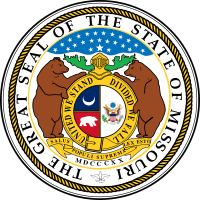 Missouri voters in the November 6 election will decide on Constitutional Amendment One, which seeks to change campaign contribution limits, gift laws, and the rules for political action committees.
Missouri voters in the November 6 election will decide on Constitutional Amendment One, which seeks to change campaign contribution limits, gift laws, and the rules for political action committees.
If passed, Amendment One would impose new contribution limits for candidates to the Missouri House and Senate. Currently, individuals and committees can contribute no more than $2,600 per election to such candidates. Amendment One would establish a limit of $2,500 for state Senate and $2,000 for state House candidates and would prevent political action committees from circumventing those limits.
Under the proposed ballot initiative, legislators and legislative employees would be banned from accepting gifts of more than $5 from lobbyists. Amendment One would also prohibit elected members and employees of the General Assembly from working as lobbyists until two years after they leave the General Assembly. Additionally, the measure would bar political fundraising on state property.
Clean Missouri is leading the campaign in support of Amendment One. The Missourians First and Advance Missouri PACS have registered to oppose Amendment One.
October 25, 2018 •
North Dakota Ethics Policy Finalized
North Dakota Gov. Doug Burgum finalized an ethics policy that applies to the governor, lieutenant governor, and employees of the governor’s office. According to the new policy, lobbyists who request a meeting with the governor’s office will be encouraged to […]
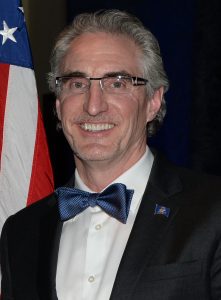 North Dakota Gov. Doug Burgum finalized an ethics policy that applies to the governor, lieutenant governor, and employees of the governor’s office.
North Dakota Gov. Doug Burgum finalized an ethics policy that applies to the governor, lieutenant governor, and employees of the governor’s office.
According to the new policy, lobbyists who request a meeting with the governor’s office will be encouraged to bring a principal of his or her client to the meeting. The policy also addresses conflicts of interests and gifts and honoraria.
No gift of any value may be accepted if offered with the intent to directly or indirectly influence the exercise of official action.
Any gift greater than $50 must be reported to the ethics officer and returned to the donor or given to charity.
October 25, 2018 •
Thursday’s LobbyComply News Roundup
Campaign Finance California: “Supervisors Order Destruction of Campaign Money Enforcement Emails” by Nick Gerda for Voice of OC Maine: “Crowdfunding of Collins Opponent in 2020 Likely Faces Legal Challenge” by Kevin Collins (Portland Press Herald) for Lewiston Sun Journal Maryland: […]
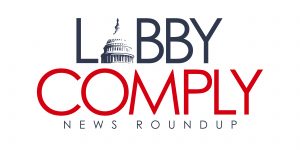 Campaign Finance
Campaign Finance
California: “Supervisors Order Destruction of Campaign Money Enforcement Emails” by Nick Gerda for Voice of OC
Maine: “Crowdfunding of Collins Opponent in 2020 Likely Faces Legal Challenge” by Kevin Collins (Portland Press Herald) for Lewiston Sun Journal
Maryland: “Prince George’s Approves Matching Funds for Local Candidates – Starting in 2026” by Rachel Chason for Washington Post
Pennsylvania: “Ex-Allentown Mayor Gets 15 Years in Prison on Corruption Charges” by Associated Press for Philadelphia Inquirer
Washington: “Corporate Dollars Gushing into Washington’s Initiative Campaigns Spur Push for New Campaign-Finance Laws” by Joseph O’Sullivan for Seattle Times
Elections
Federal: “U.S. Begins First Cyberoperation Against Russia Aimed at Protecting Elections” by Julian Barnes (New York Times) for MSN
Michigan: “Lack of Precedent Clouds Brenda Jones’ Bid for Conyers Seat” by Melissa Nann Burke for Detroit News
Ethics
Alabama: “Former Drummond V.P. and Balch Lawyer Sentenced to Federal Prison” by Ivana Hrynkiw for AL.com
Colorado: “Ethics Commission Votes to Investigate Complaint Against Colorado Gov. John Hickenlooper” by Anna Staver for Denver Post
Lobbying
Florida: “Text Messages Raise New Questions Over Andrew Gillum’s Lobbyist Connections” by Patricia Mazzei (New York Times) for WRAL
October 24, 2018 •
Baltimore City Council Passes Lobbying Act
On October 15, 2018, the Baltimore City Council passed an ethics bill introduced by City Councilman Zeke Cohen. Ordinance No. 18-0230, also known as the Transparency in Lobbying Act, requires lobbyists to file reports twice a year and affirmatively identify […]
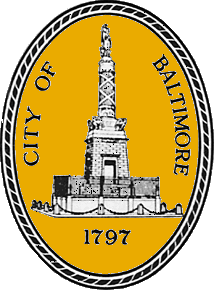 On October 15, 2018, the Baltimore City Council passed an ethics bill introduced by City Councilman Zeke Cohen.
On October 15, 2018, the Baltimore City Council passed an ethics bill introduced by City Councilman Zeke Cohen.
Ordinance No. 18-0230, also known as the Transparency in Lobbying Act, requires lobbyists to file reports twice a year and affirmatively identify their clients when approaching city government officials. Additionally, any lobbyist violating the act may be banned for a period of three years.
An amendment was adopted delaying the effective date of the reporting provisions. As a result, lobbyists will file the annual report due January 31, 2019.
Following the 2019 annual report, lobbyists will likely report semi-annually beginning with a report due on July 31, 2019. The bill will become effective 90 days from the signature of Mayor Catherine Pugh.
October 24, 2018 •
Wednesdays LobbyComply News Roundup
Campaign Finance Colorado: “Opponents Say Amendment 75 Wrong Way to Take on Colorado’s Millionaire Candidates” by Michael De Yoanna for KUNC Maine: “Portlanders Will Vote on Requiring More Campaign Finance Transparency” by Randy Billings for Portland Press Herald Elections Federal: […]
 Campaign Finance
Campaign Finance
Colorado: “Opponents Say Amendment 75 Wrong Way to Take on Colorado’s Millionaire Candidates” by Michael De Yoanna for KUNC
Maine: “Portlanders Will Vote on Requiring More Campaign Finance Transparency” by Randy Billings for Portland Press Herald
Elections
Federal: “Special Counsel Examines Conflicting Accounts as Scrutiny of Roger Stone and WikiLeaks Deepens” by Carol Leonnig, Manuel Roig-Franzia, and Rosalind Helderman (Washington Post) for Chicago Tribune
National: “Three Secretaries of State Are Refereeing the Election While Running in the Field” by Tim Johnson for McClatchy DC
Ethics
Federal: “Supreme Court Shields Commerce Secretary Wilbur Ross from Answering Questions in Census Controversy” by Robert Barnes and Tara Bahrampour (Washington Post) for MSN
Indiana: “Indiana Attorney General Won’t Be Charged in Alleged Groping” by Rick Callahan (Associated Press) for Chicago Sun-Times
Missouri: “Clean Missouri Proposition Puts Redistricting Front and Center, Limits Lobbyist Influence” by Jason Rosenbaum for St. Louis Public Radio
Pennsylvania: “Four Years Later, Pa. Lawmaker from Philly Charged in Sting Case Faces Trial” by Angela Couloumbis for Philadelphia Inquirer
South Carolina: “Ex-SC Rep. Harrison ‘Trampled’ on Ethics Law, ‘Lied’ About Quinn, Prosecutor Says” by John Monk for The State
October 23, 2018 •
Tuesday’s LobbyComply News Roundup
Campaign Finance North Carolina: “Citing Missing Contributions, Elections Board Refers Charlotte Lawmaker to Prosecutors” by Jim Morrill and Craig Jarvis for Raleigh News and Observer Elections Federal: “GOP War Room Blasts Endless Stream of Criticism at Democrats, with Warren Its […]
 Campaign Finance
Campaign Finance
North Carolina: “Citing Missing Contributions, Elections Board Refers Charlotte Lawmaker to Prosecutors” by Jim Morrill and Craig Jarvis for Raleigh News and Observer
Elections
Federal: “GOP War Room Blasts Endless Stream of Criticism at Democrats, with Warren Its Latest Target” by Michael Scherer for Washington Post
Federal: “Justice Dept. Accuses Russians of Interfering in Midterm Elections” by Adam Goldman (New York Times) for WRAL
Alaska: “Alaska Governor Says He Quit Reelection Race to Boost Democrat” by The Associated Press for Los Angeles Times
Ethics
Federal: “Trump Appointee Tapped Days Ago to Run Interior Department’s Watchdog Office Resigns Amid Controversy” by Lisa Rein, Josh Dawsey, and Juliet Eilperin for Washington Post
Idaho: “Does Idaho Need to Drain the Swamp? State Lags in National Anti-Corruption Ranking” by Kelly Browning for McClatchy DC
Oregon: “Lawmakers Ignored Subpoenas in Sex Harassment Case, Labor Commissioner Says” by Gordon Friedman for Portland Oregonian
South Carolina: “Should SC Roads Be Named After Lawmakers Who Have Pleaded Guilty to Corruption?” by Avery Wilks for The State
October 22, 2018 •
Boston Mayor Signs Lobbying Ordinance
Mayor Marty Walsh signed an ordinance last week requiring lobbyist registration and reporting for individuals and entities attempting to influence city action. The ordinance was passed by city council in late September and requires registration by every person retained, employed […]
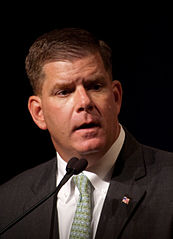 Mayor Marty Walsh signed an ordinance last week requiring lobbyist registration and reporting for individuals and entities attempting to influence city action.
Mayor Marty Walsh signed an ordinance last week requiring lobbyist registration and reporting for individuals and entities attempting to influence city action.
The ordinance was passed by city council in late September and requires registration by every person retained, employed or designated by any client or lobbying entity to engage in lobbying or lobbying activities.
This comes after two years of Mayor Walsh calling for increased transparency through the implementation of a lobbying ordinance.
In July, Mayor Walsh vetoed a lobbying ordinance passed by council as it failed to define and regulate lobbying and did not create an adequate enforcement mechanism.
The new ordinance, effective April 13, 2019, creates a quarterly reporting requirement and penalties for late registration and reporting.
October 22, 2018 •
North Carolina Special Session Adjourns
On October 15, the North Carolina General Assembly adjourned a special session after passing the Hurricane Florence Emergency Response Act to establish a fund to provide relief and assistance from the effects of Hurricane Florence. The Act also granted funds […]
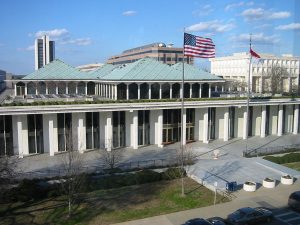 On October 15, the North Carolina General Assembly adjourned a special session after passing the Hurricane Florence Emergency Response Act to establish a fund to provide relief and assistance from the effects of Hurricane Florence.
On October 15, the North Carolina General Assembly adjourned a special session after passing the Hurricane Florence Emergency Response Act to establish a fund to provide relief and assistance from the effects of Hurricane Florence.
The Act also granted funds to the Bipartisan State Board of Elections and Ethics Enforcement to educate the public about voting in the November 2018 election, specifically in counties designated under the disaster declaration by the president.
An October 16 ruling by the Wake County Superior Court found the legislative provisions creating the Bipartisan Board unconstitutional. The court, however, stayed the injunction concerning the activity of the Bipartisan Board until after the November election.
October 22, 2018 •
Monday’s LobbyComply News Roundup
Campaign Finance Kentucky: “Kentucky AG Defends Campaign Finance Reform in Sixth Circuit” by Kevin Koeninger for Courthouse News Service National: “How a Billionaire from Another State Could Influence Your Elections” by Liz Essley Whyte for Center for Public Integrity Ethics […]
 Campaign Finance
Campaign Finance
Kentucky: “Kentucky AG Defends Campaign Finance Reform in Sixth Circuit” by Kevin Koeninger for Courthouse News Service
National: “How a Billionaire from Another State Could Influence Your Elections” by Liz Essley Whyte for Center for Public Integrity
Ethics
Federal: “Interior Secretary Zinke’s Approach to Wife’s Travels Raised Red Flags, Report Finds” by Juliet Eilperin, Lisa Rein, and Josh Dawsey for Washington Post
Florida: “Andrew Gillum, a Florida Insider Running as a Progressive Outsider” by Matt Flegenheimer and Patricia Mazzei for New York Times
Washington: “No Swamp Here: Washington tops all states in anti-corruption ranking” by Kellen Browning (McClatchy DC) for Bellingham Herald
Lobbying
Alaska: “State Regulators to Alaska Lobbyist: Stop helping candidates raise money” by Nathaniel Hertz for Alaska Public Media
Federal: “Saudi Lobbying in the U.S. Has Tripled Since Trump Took Office” by Alana Abramson for Time
Hawaii: “Why Are City Lawmakers Involved in This Lobbyist’s Backyard Tiff?” by Natanya Friedheim for Honolulu Civil Beat
New Hampshire: “N.H. Legislators Look to Lobbyists for Reliable Source of Re-Election Cash” by Casey McDermott for New Hampshire Public Radio
October 19, 2018 •
News You Can Use – October 19, 2018
National: First Came a Flood of Ballot Measures from Voters. Then Politicians Pushed Back. WRAL – Timothy Mitchell (New York Times) | Published: 10/15/2018 Over the past two years, governors and state Legislatures around the nation have used […]

National:
First Came a Flood of Ballot Measures from Voters. Then Politicians Pushed Back.
WRAL – Timothy Mitchell (New York Times) | Published: 10/15/2018
Over the past two years, governors and state Legislatures around the nation have used an array of tools to overturn, delay, diminish, or pre-emptively declare unconstitutional a variety of initiatives approved by the same voters who put them in office. Those moves follow a rise in efforts by residents to enact their own legislation, in a growing battle over who will make laws – legislators or voters. In 2016, 71 initiatives were brought forward by voters; 46 were approved, and Legislatures changed or sought to alter nearly one-quarter of those. In decades past, no one tracked the number of ballot initiatives that were overturned by politicians, but experts say they have noted a significant increase lately.
Federal:
Dark-Money Groups Were Ordered to Reveal Their Donors. They Didn’t.
Politico – Maggie Severns | Published: 10/16/2018
A disclosure deadline passed with few political nonprofits unveiling any donors, even after a court threw out a regulation that let the groups keep their funding sources private, and after the FEC told the organizations to reveal anyone who gave money after the ruling at the end of September. The Campaign Legal Center tracked 18 political nonprofits that spent money on the midterm elections between the court ruling and the end of September and could thus have donations to list. It found 14 of those groups disclosed no information with the FEC. “Many groups are likely anticipating that the FEC isn’t going to second-guess their assertion that they received no reportable contributions,” said Brendan Fischer of the Campaign Legal Center.
From the States and Municipalities:
Alaska: Alaska Law Says Lobbyists Can’t Fundraise for Candidates. But the Invitations Keep Coming
Alaska Public Media – Nathaniel Hertz | Published: 10/11/2018
In the past year, lobbyists Ashley Reed and Jerry Mackie have emailed clients and friends invitations to political fundraisers for candidates including Alaska Gov. Bill Walker and House Speaker Bryce Edgmon. That is in spite of a state law that bars lobbyists from helping with legislative and gubernatorial candidates’ fundraising efforts. Penalties for violations include a fine capped at $1,000 and up to a year in prison. Both lobbyists said they received permission to send the invitations from the Alaska Public Officers Commission. But the commission’s director, Heather Hebdon, said one of her employees had only issued non-binding, informal advice that would not protect lobbyists against a complaint.
California: An L.A. Councilman Held an $800-Per-Person Fundraiser. The Next Day, He Announced He Was Stepping Down
Los Angeles Times – Emily Alpert Reyes and David Zahniser | Published: 10/15/2018
When Los Angeles City Councilperson Mitchell Englander announced he would soon step down to join a sports and entertainment firm, the news surprised many in City Hall. His decision was especially surprising to some who had shown up to a fundraiser advertised at $800 per person that Englander staged the night before. Englander used the event to raise money for his officeholder account, a fund that city politicians use to pay for food, travel, office supplies, or other expenses tied to their official duties. Englander’s handling of the episode was considered brazen even among some City Hall veterans familiar with political fundraising.
Florida: Wealthy Candidate Set Up a Blind Trust That Wasn’t Blind
WRAL – Kevin Sack and Patricia Mazzei (New York Times) | Published: 10/17/2018
To shield himself from future conflict-of-interest charges, Florida Gov. Rick Scott, who is now running to unseat incumbent U.S. Sen. Bill Nelson, created a $73.8 million investment account that he called a blind trust. But an examination of Scott’s finances shows his trust has been blind in name only. There have been numerous ways for him to have knowledge about his holdings. Among other things, he transferred many assets to his wife and neither “blinded” nor disclosed them. And their investments have included corporations, partnerships, and funds that stood to benefit from his administration’s actions. Scott’s case demonstrates the political complexities of campaigning while wealthy, a hallmark of the age of the first billionaire president.
Georgia: Showdown in Georgia Governor’s Race Reflects a Larger Fight Over Voting Rights
WRAL – Astead Herndon and Trip Gabriel (New York Times) | Published: 10/15/2018
Secretary of State Brian Kemp, who is also the Republican candidate for governor, is in charge of elections and voter registration in Georgia. His Democratic opponent, former state Rep. Stacey Abrams, and voting rights advocacy groups charge Kemp is systematically using his office to suppress votes and tilt the election, and his policies disproportionately affect black and minority voters. The uproar over voting seems almost an inevitable development in the race, which pits two candidates on opposite sides of the nation’s voting wars who have battled with one another over access to the polls for years.
Maryland: Baltimore City Council Tightens Restrictions on Lobbyists, Require Forms Go Online
Baltimore Sun – Luke Broadwater | Published: 10/15/2018
The Baltimore City Council passed legislation that would tighten restrictions on lobbyists and require the ethics board to post lobbying disclosure forms online. Under the bill, lobbyists approaching city government would have officials to “affirmatively identify” their clients; disclosure reports would be filed twice a year, rather than annually; and there would be a possible three-year ban for any lobbyist who violates the law.
Michigan: ‘Lobbyists and Lansing Are Almost Synonymous’: How the city is shaped by advocacy sector
Lansing State Journal – Carol Thompson | Published: 10/18/2018
The advocacy industry – including the communications agencies and lobbyists they employ – is a unique one in Lansing, helping to shape the economy and culture of the city that serves as the state capital. It is also a growing sector of the state’s economy. The number of lobbyists has steadily increased since the 1990s. In 1998 there were 2,202 lobbyists and lobbyist agencies registered in Michigan; in 2017, there were 2,954. “We are kind of like motor oil,” said Taylor Benavente of the Michigan Society of Association Executives. “We’re behind the scenes, keeping the engine running.”
New Mexico: Long Road Brings NM Ethics Commission Proposal to Ballot
Albuquerque Journal – Dan Boyd | Published: 10/13/2018
After more than a decade of debate and disagreement, New Mexico lawmakers finally approved the framework of an independent ethics commission during the 2017 legislative session. Now, it will be up to voters to decide in November whether to put the commission in the state constitution. Even if voters approve the measure in November, and there is no organized opposition against it, there will still be key structural decisions to be made. For instance, the proposed constitutional amendment does not stipulate exactly when complaints would be made public and does not provide for a funding mechanism to pay for the commission’s operations.
New York: New York Attorney General Expands Inquiry into Net Neutrality Comments
WRAL – Nicholas Confessore (New York Times) | Published: 10/16/2018
New York Attorney General Barbara Underwood subpoenaed more than a dozen telecommunications trade groups, lobbying contractors, and advocacy organizations as part of the state’s investigation into widespread fake public comments submitted to the Federal Communications Commission (FCC) over net neutrality. The FCC received a record 22 million comments ahead of its decision to repeal the rules requiring internet service providers to treat all web traffic equally. Millions of comments were provided using temporary or duplicate email addresses, while others recycled identical phrases. Seven popular comments, repeated verbatim, accounted for millions more.
North Dakota: Ethics Policy Finalized for North Dakota Governor’s Office
Bismarck Tribune – Jack Dura | Published: 10/17/2018
North Dakota Gov. Doug Burgum finalized an ethics policy, months after the he reimbursed about $40,000 to Xcel Energy for events related to a Super Bowl invitation to Minneapolis. The policy applies to the governor, lieutenant governor, and all employees of the governor’s office. Its language addresses conflicts-of-interest, gifts, expenses, and political activities, among other items.
South Carolina: Will SC Lawmakers Close Loopholes Exposed by State House Corruption Probe?
The State – Maayan Schecter | Published: 10/11/2018
South Carolina legislators and Gov. Henry McMaster said they want to see the state toughen its ethics laws in the wake of a grand jury report into corruption at the statehouse. Grand jurors called for a number of reforms in the report, including eliminating “dark money” and defining the difference between lobbyists and consultants. The corruption probe report details how political consultant Richard Quinn used his consulting business and legislative network, which included his son, disgraced Rep. Rick Quinn to defeat or pass legislation on behalf of his corporate and institutional clients, in what special prosecutor David Pascoe described as “pay-for-influence schemes.”
South Dakota: Free Speech Group Can Publish Ballot Information Ahead of Election, Federal Judge Rules
Sioux Falls Argus Leader – Danielle Ferguson | Published: 10/17/2018
A free speech group suing South Dakota over its campaign finance laws can distribute educational materials about two upcoming ballot issues ahead of the November election, a federal judge ruled. The Institute for Free Speech will be able to distribute an analysis on two ballot issues without fear of the state seeking prosecution for violating a law regulating independent communication expenditure in political campaigns. The institute has asked a federal judge to declare a South Dakota campaign finance law unconstitutional, saying the law regulating independent communication expenditures is vague and a violation of First Amendment rights. The court did not declare the law unconstitutional but granted a preliminary injunction to prevent the state from prosecuting the group for posting the analysis.
Virginia: In Virginia House Race, Anonymous Attack Ads Pop Up on Facebook
WRAL – Kevin Roose (New York Times) | Published: 10/17/2018
A competitive race in Virginia’s 10th Congressional District has a new element: anonymous attack ads on Facebook. The ads were purchased by a critic of Jennifer Wexton, a Democrat trying to unseat U.S. Rep. Barbara Comstock. They attack Wexton with language and imagery not typically found in even the roughest campaigns. Since 2016, when Facebook ads were used to spread disinformation and Russian propaganda ahead of the presidential election, the social network has clamped down on political advertisers. But the owner of “Wacky Wexton Not” was able to remain anonymous by taking advantage of a loophole in Facebook’s policy.
West Virginia: W.Va. Supreme Court Justice Loughry Guilty on 11 Counts, Not Guilty on 10 Counts; Jury Hangs on 1 Count
West Virginia MetroNews – Brian McElhinny | Published: 10/12/2018
A jury convicted suspended West Virginia Supreme Court Justice Allen Loughry on 11 of the 22 charges he faced at his trial. The House impeached him and three other justices over questions involving lavish office renovations that evolved into accusations of corruption, incompetence, and neglect of duty. Loughry still faces an impeachment trial. Jurors convicted Loughry on seven wire fraud counts, which related to his use of state vehicles and credit cards for travel during weekends and holidays. One of the two convictions for making false statements showed he lied to investigators about using the vehicles and credit cards for personal business. The jury found Loughry attempted to make Kim Ellis, director of administrative services for the court, misremember conversations they had about the cost of renovations to his Supreme Court office.
October 18, 2018 •
Thursday’s LobbyComply News Roundup
Elections “The Legislature Made Unconstitutional Changes to the NC Elections Board, Judges Rule” by Will Doran for Raleigh News And Observer Ethics “FBI Official Accepted Free Tickets to Sporting Event from Reporter, Inspector General Says” by Matt Zapotosky and Devlin […]
 Elections
Elections
“The Legislature Made Unconstitutional Changes to the NC Elections Board, Judges Rule” by Will Doran for Raleigh News And Observer
Ethics
“FBI Official Accepted Free Tickets to Sporting Event from Reporter, Inspector General Says” by Matt Zapotosky and Devlin Barrett for Washington Post
“HUD Appointee Abruptly Moved to Lead Interior Dept.’s Watchdog Unit Amid Zinke Probe” by Lisa Rein, Robert O’Harrow Jr., and Juliet Eilperin for Washington Post
“Alaska Lieutenant Governor Resigns Over Comments as Election Day Nears” by Becky Bohrer (Associated Press) for USA Today
“L.A. City Employee Is Fined More Than $16,000 for Dodging Parking Fees” by Emily Alpert Reyes for Los Angeles Times
“New York Attorney General Expands Inquiry into Net Neutrality Comments” by Nicholas Confessore (New York Times) for WRAL
“Energy Company Executive Draws 14-Month Sentence” by Casey Seiler for Albany Times Union
Legislative Issues
“W.Va. Senate Postpones Acting on Impeachment Trial Ruling” by Associated Press for WTOP
Lobbying
“Law Dictates That Lobbyists Disclose Expenses” by Jessica Holdman for Bismarck Tribune
October 17, 2018 •
Wednesday’s LobbyComply News Roundup
Campaign Finance California: “An L.A. Councilman Held an $800-Per-Person Fundraiser. The Next Day, He Announced He Was Stepping Down” by Emily Alpert Reyes and David Zahniser for Los Angeles Times Ethics National: “Donors to Dark-Money Groups Mostly Hidden Despite Court […]
 Campaign Finance
Campaign Finance
California: “An L.A. Councilman Held an $800-Per-Person Fundraiser. The Next Day, He Announced He Was Stepping Down” by Emily Alpert Reyes and David Zahniser for Los Angeles Times
Ethics
National: “Donors to Dark-Money Groups Mostly Hidden Despite Court Ruling” by Maggie Severns for Politico
California: “Emails Show California Agency’s Cozy Ties to Gas Tax Backers” by Sophia Bollag (Associated Press) for San Diego Union Tribune
Colorado: “Ex-Secretary of State Gessler Appeals Ethics Case to U.S. Supreme Court” by Marianne Goodland for Colorado Springs Gazette
Iowa: “Capitol Harassment: Iowa lawmakers admit they lag on curbing sexual misconduct. They’re not alone” by Jason Clayworth for Des Moines Register
New York: “Email Shows Cuomo Donor Contacted Officials During Grant Process” by Chris Bragg for Albany Times Union
West Virginia: “W.Va. Supreme Court Justice Loughry Guilty on 11 Counts, Not Guilty on 10 Counts; Jury Hangs on 1 Count” by Brian McElhinny for West Virginia MetroNews
Lobbying
Maryland: “Baltimore City Council Tightens Restrictions on Lobbyists, Require Forms Go Online” by Luke Broadwater for Baltimore Sun
October 16, 2018 •
Anne Arundel County Passes Public Ethics Bill
On October 15,2018, the Anne Arundel County Council passed a public ethics bill originally proposed by County Executive Steve Schuh. Bill No. 80-18 increases late filing fees for lobbyists and employees, adds a revolving door provision, modifies certain definitions, requires […]
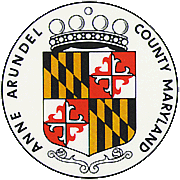 On October 15,2018, the Anne Arundel County Council passed a public ethics bill originally proposed by County Executive Steve Schuh.
On October 15,2018, the Anne Arundel County Council passed a public ethics bill originally proposed by County Executive Steve Schuh.
Bill No. 80-18 increases late filing fees for lobbyists and employees, adds a revolving door provision, modifies certain definitions, requires employee ethics training, and creates changes to comply with state ethics laws, among other provisions. The bill also updates who is required to file financial disclosure statements.
The bill will become effective 45 days from the signature of the County Executive.
October 16, 2018 •
Ad Time Reservations Qualify as Expenditures
On October 9, the Alaska Public Offices Commission (APOC) ruled that two independent expenditure groups violated state campaign finance laws. The groups, Republican Governors Association and Families for Alaska’s Future – Dunleavy, reserved ad time to influence the gubernatorial election […]
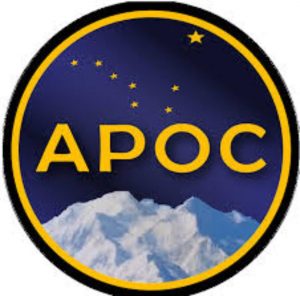 On October 9, the Alaska Public Offices Commission (APOC) ruled that two independent expenditure groups violated state campaign finance laws.
On October 9, the Alaska Public Offices Commission (APOC) ruled that two independent expenditure groups violated state campaign finance laws.
The groups, Republican Governors Association and Families for Alaska’s Future – Dunleavy, reserved ad time to influence the gubernatorial election without registering as independent expenditure groups.
APOC determined the reservation of ad time is a promise or agreement to transfer value between parties. Therefore, the reservation qualifies as an expenditure under state law.
State and Federal Communications, Inc. provides research and consulting services for government relations professionals on lobbying laws, procurement lobbying laws, political contribution laws in the United States and Canada. Learn more by visiting stateandfed.com.

